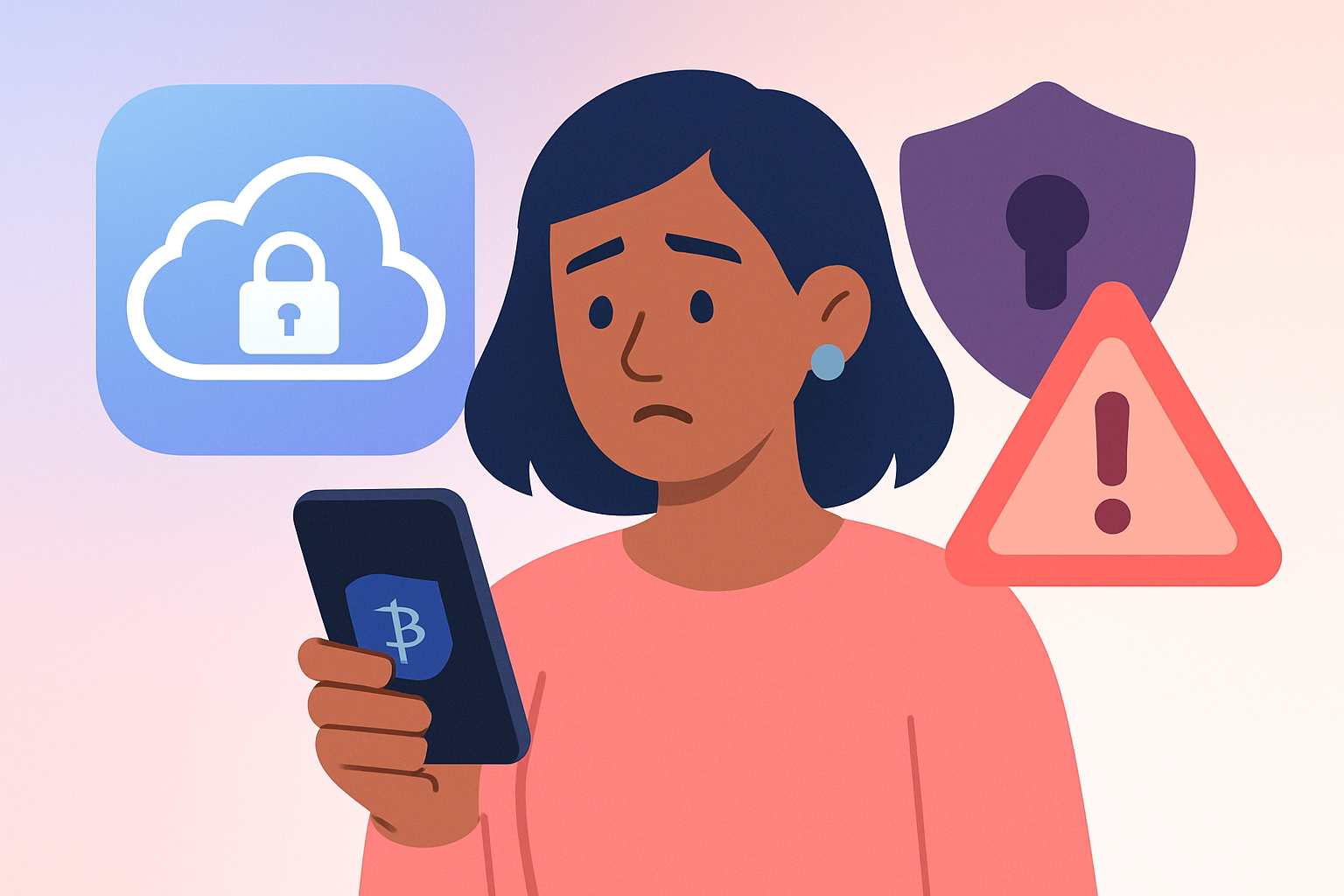In early 2025, the United Kingdom ignited a firestorm in the global privacy and crypto communities by secretly ordering Apple to build a backdoor into its iCloud encryption. For crypto owners, this wasn’t just another headline about tech giants and government overreach – it was a direct threat to the very foundation of digital asset security. The move forced Apple to withdraw its Advanced Data Protection (ADP) for UK users, stripping away end-to-end encryption from iCloud backups and exposing sensitive information like crypto wallet keys to unprecedented risk.
![]()
Why Crypto Wallet Security Hinges on Strong Encryption
At its core, crypto wallet security is non-negotiable. Your private keys are the only way to access your cryptocurrency holdings; lose them or let them fall into the wrong hands, and your assets are gone forever. Many users rely on popular mobile wallets that offer seamless integration with iCloud or similar cloud services for backup and recovery. While convenient, this setup is only as secure as the underlying cloud infrastructure.
The UK’s demand for an iCloud backdoor shattered any illusion that mainstream cloud providers can guarantee long-term protection for sensitive data. If a government can compel a tech giant like Apple to weaken its encryption, crypto users must ask: what stops others from following suit? Even though international backlash forced the UK to ultimately reverse course by September 2025 (source), the episode exposed systemic vulnerabilities that cannot be ignored.
The Anatomy of Risk: What Actually Happened?
The timeline is instructive. In February 2025, under the Investigatory Powers Act, UK authorities issued a secret order demanding Apple create access to all encrypted iCloud data belonging to British users (source). Apple responded by disabling ADP in the UK – a move that instantly downgraded user privacy protections. Suddenly, anyone storing private keys or seed phrases in iCloud backups was at risk of exposure through legal compulsion or potential data breaches.
This wasn’t just theoretical. Security researchers and industry leaders sounded alarms about how such backdoors could be exploited not only by governments but also by malicious actors if leaked or abused. For those onboarding into cryptocurrency or managing significant holdings, this was a wake-up call: cloud convenience comes at a steep security cost.
Lessons Learned: Rethinking Crypto Storage Strategies
The UK’s temporary reversal offers little comfort for those who value digital sovereignty. The fact remains – legal frameworks can change overnight, putting your assets at risk if you’re unprepared. If you’re relying on cloud backups for your wallet keys today, tomorrow’s regulatory winds could leave you dangerously exposed.
This episode underscores why best practices matter more than ever:
- Avoid storing private keys or seed phrases in any cloud service, no matter how trusted it seems.
- Embrace hardware wallets, which keep your secrets offline and immune from remote compromise.
- Stay informed about evolving laws and technology trends, especially as governments around the world debate new powers over encrypted data.
The lesson is clear: true control over your digital assets means taking personal responsibility for their security – not outsourcing it to third parties who may be compelled to compromise your privacy at any moment.
For crypto owners, the UK iCloud backdoor saga is more than a cautionary tale. It’s a stark reminder that regulatory uncertainty can instantly upend your security assumptions. Even though Apple’s Advanced Data Protection has been restored for now, the precedent is set: governments may try again, and technology companies can be forced to comply, sometimes in secret.
It’s tempting to believe that after this high-profile reversal, the risk has passed. But history suggests otherwise. With each new attempt to weaken encryption in the name of law enforcement or national security, your crypto wallet keys could be caught in the crossfire. The only defense is proactive self-custody and vigilance.
Practical Steps for Protecting Your Crypto Keys
If you’re serious about safeguarding your digital assets against both hackers and overreaching authorities, take these steps today:
Hardware wallets remain the gold standard for secure crypto storage. Unlike cloud-based solutions, they keep your private keys completely offline, insulated from remote attacks and policy changes alike. If you must back up recovery phrases or keys, consider using encrypted USB drives or even paper stored in a physically secure location, never in an unprotected note or photo on your phone.
Why Cloud Convenience Isn’t Worth the Risk
The events of 2025 have exposed a hard truth: convenience can be the enemy of security. Storing sensitive data like seed phrases in iCloud may save time during onboarding or device loss, but it also exposes you to risks far beyond your control. As we’ve seen, even top-tier tech providers are not immune from legal pressure or policy shifts.
This isn’t just about privacy for privacy’s sake. It’s about protecting real value, your investments and your financial future. Crypto holders must cultivate a mindset of resilience: assume that any centralized service could one day be compromised or compelled to hand over data.
Looking Ahead: The Ongoing Battle Over Encryption
The UK’s retreat under international scrutiny hasn’t ended the debate over strong encryption, it has only intensified it. With other countries watching closely and considering similar measures, crypto users everywhere should prepare for more turbulence ahead. Staying informed isn’t optional; it’s essential protection.
If there’s one takeaway from this episode, it’s that self-custody is not just a technical preference, it’s a political act. By refusing to rely on third-party cloud backups for critical information like wallet keys, you’re asserting sovereignty over your assets regardless of shifting legal landscapes.
The world of cryptocurrency rewards those who take responsibility into their own hands, not just with potential profits but with genuine autonomy. As governments continue to test the boundaries between privacy and power, let this chapter serve as both warning and inspiration: true security begins with you.



